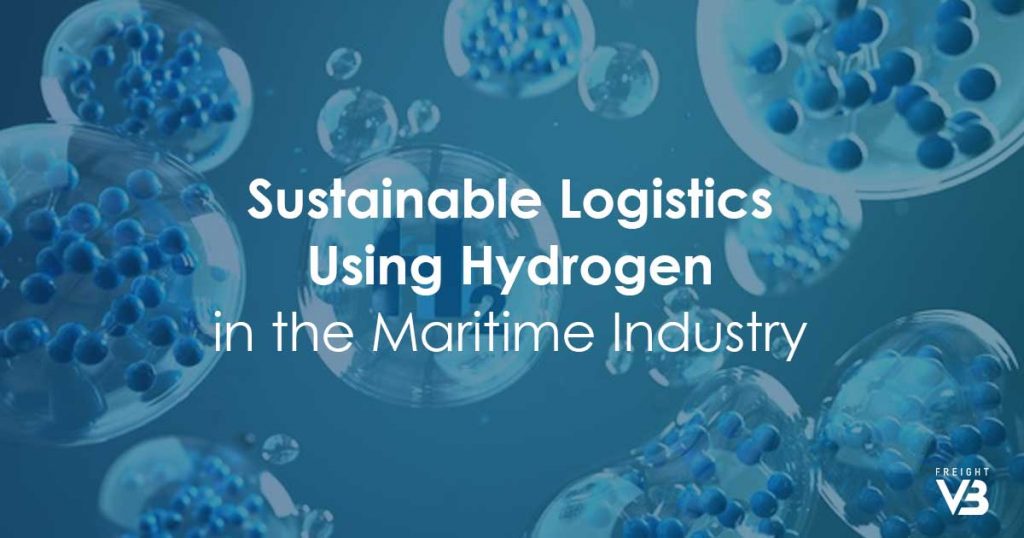
Key Takeaway Points
Hydrogen advances sustainable logistics in the maritime industry, offering zero emissions.
The adoption of hydrogen-fueled vessels presents a promising solution for greener shipping and requires ABS requirements for safe implementation.
Innovations in hydrogen carriers like M-BH4 and LOHC enable high-energy densities and utilise existing infrastructure.
Overcoming challenges involves efficient recycling of spent fuel and implementing safety measures and infrastructure upgrades.
Sustainable logistics in the maritime industry brings environmental impact reduction, energy efficiency, cost savings, and increased supply chain resilience.
Paving the Way for a Greener Future with Sustainable Logistics Solutions
In a world piloting towards sustainability in logistics, the maritime industry plays a vital role in shaping a greener future. Since supply chain management and transportation logistics are such a vital part of global trade, it is imperative to seek sustainable practices.
That’s where hydrogen comes in, a clean energy source with enormous potential. This article examines the transformative power of hydrogen in sustainable logistics, discussing its benefits, implementation challenges, and notable initiatives in the maritime sector. Join us on our journey to discover the path to a more environmentally conscious and efficient maritime industry.
The Role of Hydrogen in Sustainable Logistics
As a clean energy source, it has numerous advantages, including zero emissions and a reduced carbon footprint. Due to its superior energy density, hydrogen has great potential for powering ships, enabling longer ranges and greater efficiency.
Implementing Sustainable Logistics Practices in the Maritime Industry
Adoption of Hydrogen-Fueled Vessels
With an overview of hydrogen-powered ships and their design and operational considerations, stakeholders can take advantage of this green technology. To ensure a safe and efficient introduction, the American Bureau of Shipping (ABS) has developed requirements specific to hydrogen-powered ships, covering ship design, fuel containment, power generation, and more.
Innovations in Hydrogen Carriers
To fully utilize hydrogen’s potential, innovative carriers like metal borohydrides (M-BH4) and liquid organic hydrogen carriers (LOHC) are being explored. M-BH4, such as sodium and potassium borohydrides, offer high-energy densities but require solutions for fuel transportation. LOHCs, on the other hand, are organic compounds that can store and release hydrogen, utilising existing infrastructure with certain safety considerations.
Overcoming Challenges and Promoting Efficiency
Efficient recovery of spent fuel, such as metal borohydride metaborate, is critical to maximising the sustainability of hydrogen-based streams. Ongoing research at institutions such as the Delft University of Technology and the University of Amsterdam aims to find efficient recycling methods.
Benefits of Sustainable Logistics in the Maritime Industry
There are many benefits to adopting sustainable logistics practices in the maritime industry. First, by replacing fossil fuel-based propulsion with clean hydrogen energy, the environmental impact can be significantly reduced.
Second, sustainable logistics increases energy efficiency, resulting in cost savings and long-term operability. Finally, it contributes to a more sustainable and resilient maritime industry by increasing supply chain resilience by minimizing dependence on finite resources and reducing carbon emissions.
Case Studies of Successful Sustainable Logistics Initiatives
Several notable case studies exemplify successful sustainable logistics initiatives in the maritime industry. The Port of Rotterdam’s Platform Zero Global Partnership for Hydrogen Innovation has paved the way for hydrogen adoption.
The Port of Amsterdam’s demo vessel and exploration of hydrogen carriers demonstrate their commitment to sustainable solutions. Additionally, collaborations between maritime ports, academia, and innovation hubs, such as the one formed to accelerate hydrogen innovation, showcase the power of collective efforts in driving sustainable logistics forward.
Future Outlook and Recommendations
The future outlook for sustainable logistics in the maritime industry is promising. Scaling up hydrogen adoption holds immense potential in decarbonizing the sector. To facilitate this transition, strong policy support and regulatory frameworks are crucial.
Collaboration and knowledge sharing among stakeholders, including ports, governments, industry players, and research institutions, will accelerate innovation and drive the necessary changes for a sustainable future in maritime logistics.
Final Thoughts on Sustainable Logistics
Let’s reflect that sustainable logistics using hydrogen presents a transformative opportunity for the maritime industry. The advantages of hydrogen as a clean energy source, along with the integration of hydrogen in supply chain management and the adoption of hydrogen-fueled vessels, offer significant benefits in terms of environmental impact reduction, energy efficiency, and supply chain resilience. By embracing these practices, we can create a greener and more sustainable future in logistics. Let us take action now for a cleaner and more efficient maritime industry.
References:
Hydrogen Alertive Carrier Overview
ABS publishes requirements for hydrogen-fueled vessels
Prominent maritime ports, academia & innovation hubs unite to accelerate hydrogen innovation
Hydrogen Mobility Ireland reports on the role of H2-derived e-fuels in maritime
Pioneering zero-emission fuels for a sustainable maritime industry
First Green Hydrogen Shipping Corridor to Connect Algeciras with Rotterdam
Spain Advances Plans for Maritime Hydrogen Corridor to the Netherlands


